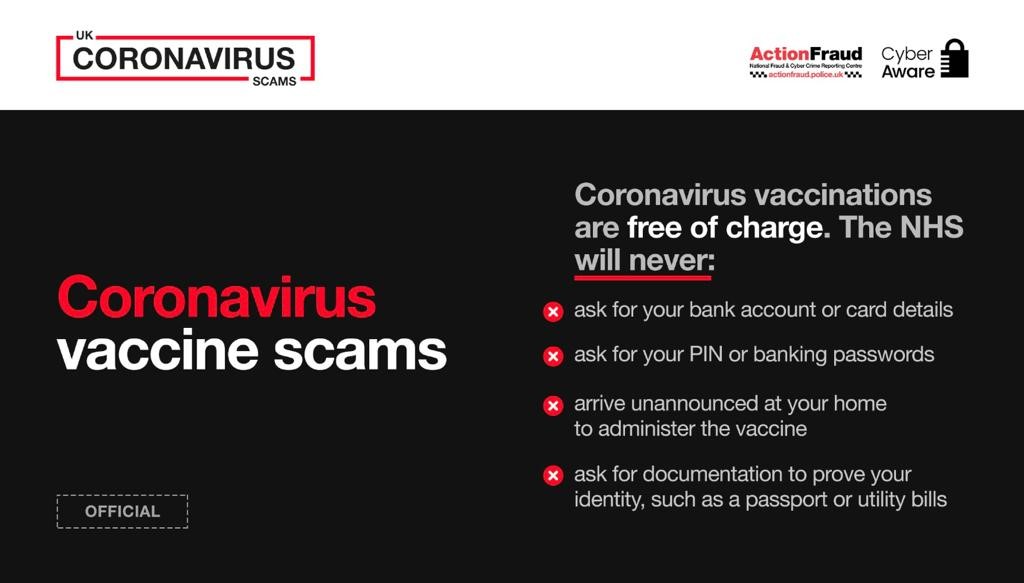Life In London
Scams in the time of a pandemic
As every university student knows, knowledge is power, but it can also keep you safe from trouble. It is, of course, one thing to know to look both ways before you cross the street, but what about if you come in contact with people who are "in the business" of making sure they can profit from your inexperience and a lack of knowledge in certain areas?
Scammers do just that and by finding out more about how they operate you will be less likely to fall a victim of their "business model". Don't dismiss it as something that only our grandparents would fall for - we all have days when we want to do things quickly, without thinking too much; maybe you're stressed or have a lot of deadlines... Or maybe you're new to the country and assume that when someone is calling you asking you for your credit card details to confirm your visa is just the way things are done... (spoiler alert, this is never how things are done!)
Arm yourself with knowledge and be ready to spot when things are not exactly how they should be!
Read these guides for more info. Below in the article we talk about coronavirus scams and how to report fraud and cybercrime.
CORONAVIRUS SCAMS

Scams are among the most prevalent types of crime in the UK, and coronavirus is creating a perfect environment for fraudsters to thrive. During these difficult times, it’s important that you remain vigilant.
Below are examples of the types of scams to be aware of and how to report them:
A stranger offering to do the shopping for you:
Scammers are targeting the elderly and the vulnerable in the society by offering to do shopping on their behalf. The scammers will simply take the money and never return.
You should always exercise caution when accepting help from an individual or allowing them access to your home in any capacity.
Fake lockdown fines:
People have been receiving fake text messages stating that they have been fined for stepping outside during lockdown restrictions. The texts claim to be from the government however are not true.
Always take a moment to think before you part with your money or information.
HMRC goodwill payment:
Individuals are being sent fake messages stating 'As part of the NHS promise to battle the COV-19 Virus, HMRC has issued a payment of £258 as a goodwill payment'. These messages are designed to steal your account details. This is usually sent as a text message. Do not click on the link provided.
Fake Coronavirus prevention pill:
Scammers are targeting the vulnerable and elderly by offering them pills to prevent coronavirus or attempting to sell testing kits. These pills do not exist.
Scammers selling face masks and hand sanitiser:
Scammers are trying to sell face masks and hand sanitisers. These never arrive after you have paid for it.

Contact your local police:
- 101 - For non-emergency
- 999 - For emergency
- @Metpoliceuk
To find out more about policing in your area or report a crime, visit www.met.police.uk or call 101.
In an emergency call 999
Fraud and scams come in many forms, however, there are some simple steps you can take to help protect yourself:

- Do not give any personal information (name, address, bank details, email or phone number) to organisations or people before verifying their credentials.
- If a person is visiting your home or calling is claiming to be from an organisation and you are in any doubt about someone’s identity, contact the company directly using a known email or phone number to verify.
- Be wary of any emails or texts that you weren’t expecting that claim to be from an organisation such as a bank or utility provider that have a link included. Do not click the link unless you’re confident that this is from the correct organisation.
- Do not let anyone enter your home which you have not previously arranged a meeting with.
REPORTING FRAUD AND CYBERCRIME
You can report fraud or cybercrime to Action Fraud any time of the day or night using their online fraud reporting tool. You can also report and get advice about fraud or cybercrime by calling:
0300 123 2040
If you are deaf or hard of hearing you can contact them on textphone 0300 123 2050.
Topics
- Read Next
-
 Arts & Crafts - College Hall
Arts & Crafts - College Hall
 Mafia 7/5 - College Hall
Mafia 7/5 - College Hall
 Kems card game event- College Hall
Kems card game event- College Hall
 RA Applications now open
RA Applications now open
 Nutford House - Beginners Embroidery Night!
Nutford House - Beginners Embroidery Night!
 Safeguarding for Mental Health Ambassadors
Safeguarding for Mental Health Ambassadors
 Coffee Saturdays at Handel Mansions - Handel Mansions
Coffee Saturdays at Handel Mansions - Handel Mansions
 Pilates & yoga at College Hall - weekly class
Pilates & yoga at College Hall - weekly class
 Fancy showing off your favourite dish from home?
Fancy showing off your favourite dish from home?
 Nutford House - Coffee & Cake Sundays
Nutford House - Coffee & Cake Sundays
- Popular
-
 What's cooking? Online menu for catered halls
What's cooking? Online menu for catered halls
 Register with a GP
Register with a GP
 Contact your Hall Management team
Contact your Hall Management team
 Be aware of fake police officers!
Be aware of fake police officers!
 How to get in touch with the Warden's Team
How to get in touch with the Warden's Team
 New to banking in the UK?
New to banking in the UK?
 How we stay safer, together
How we stay safer, together
 BLOOM @Senate House - your space to study and socialise
BLOOM @Senate House - your space to study and socialise
 Support Services at your college
Support Services at your college
 Advice From a Graduate: Deadlines & Exams
Advice From a Graduate: Deadlines & Exams

